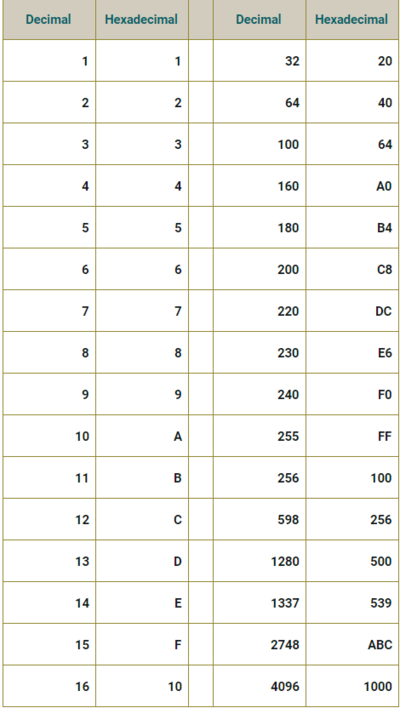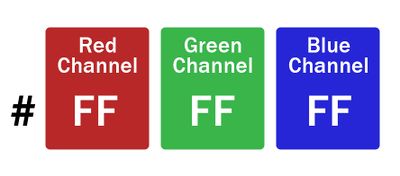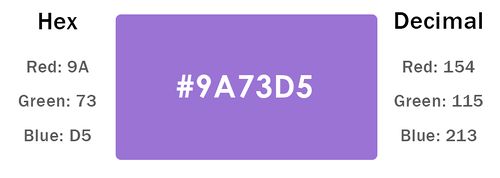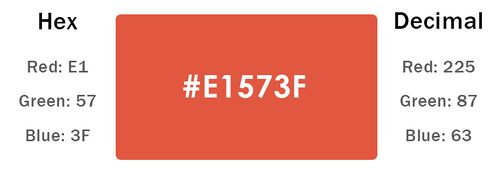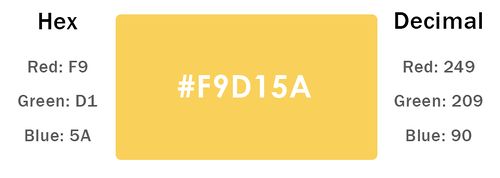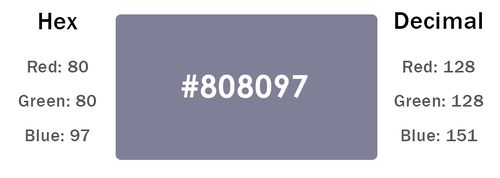Hexadecimal
Contents
Definition
Hexadecimal, commonly abbreviated to Hex and also known as Base 16, is a method of counting wherein a radix, or base, of 16 is used. Similar to ASCII, Hexadecimal has every character associated with a unique id. In Hexadecimal, [0 - 9] is represented with [0 - 9] like in Decimal but [A - F] is used to represent [10 - 15].
Relevance
Explanation
Base 16 Table
Hex Code for Color
All graphic design software and companies use hex code to get exact colors for their use. Hex code can pinpoint any color within the visible spectrum and is a great reference guide for people struggling to find a color. Hex code is 6 characters long, each set of two representing a channel (Red, Green, Blue) and how "bright" that color is shinning.
White: For white, all channels are at its highest point or #FFFFFF. Red, Green, and Blue are all at a maximum value of 255 when white color is selected. If F is equal to 15 then 255 will be FF or 15*15. So if 255 is FF then the RGB values would be R:255, G:255, B:255
R:FF, G:FF, B:FF
#FFFFFF
On the other hand, Black is the absence of light or color. It's hex code would be:
#000000
Similarly:
- Pure Red -
#FF0000
- Pure Green -
#00FF00
- Pure Blue -
#0000FF
Examples:
Resources
https://www.theproblemsite.com/reference/mathematics/codes/hexadecimal-code
